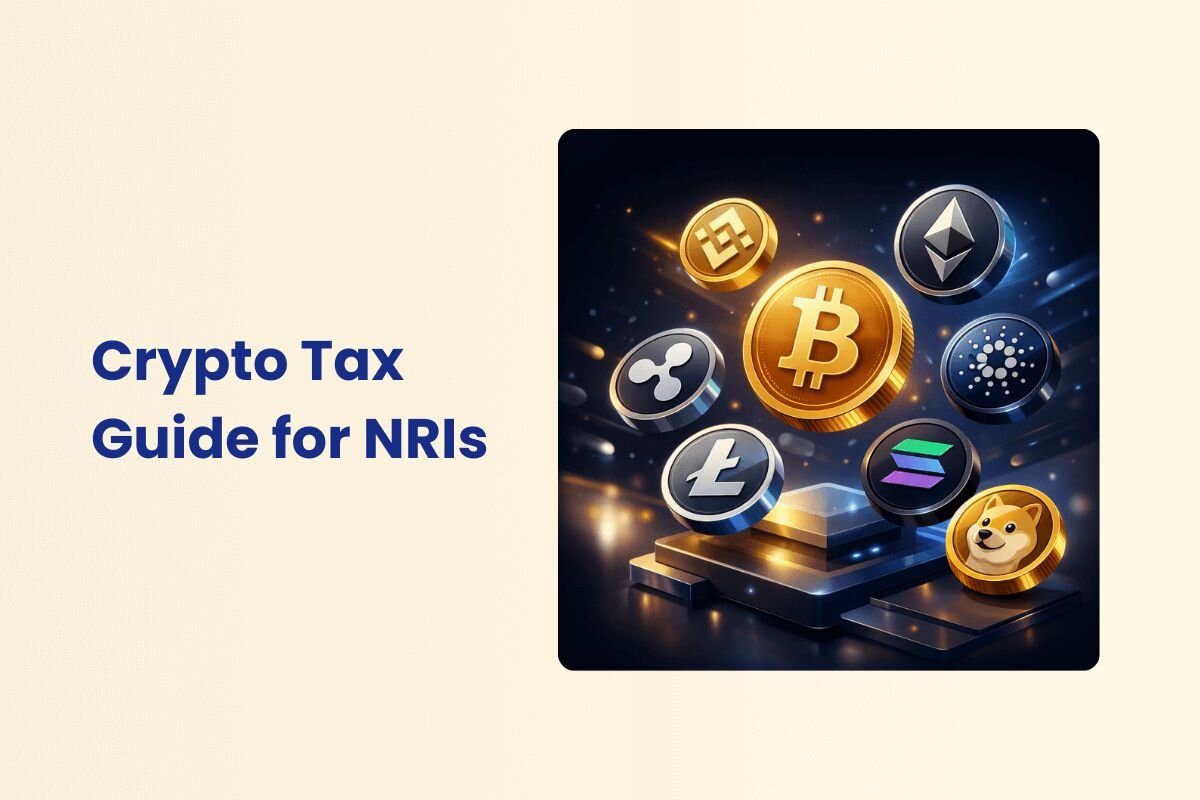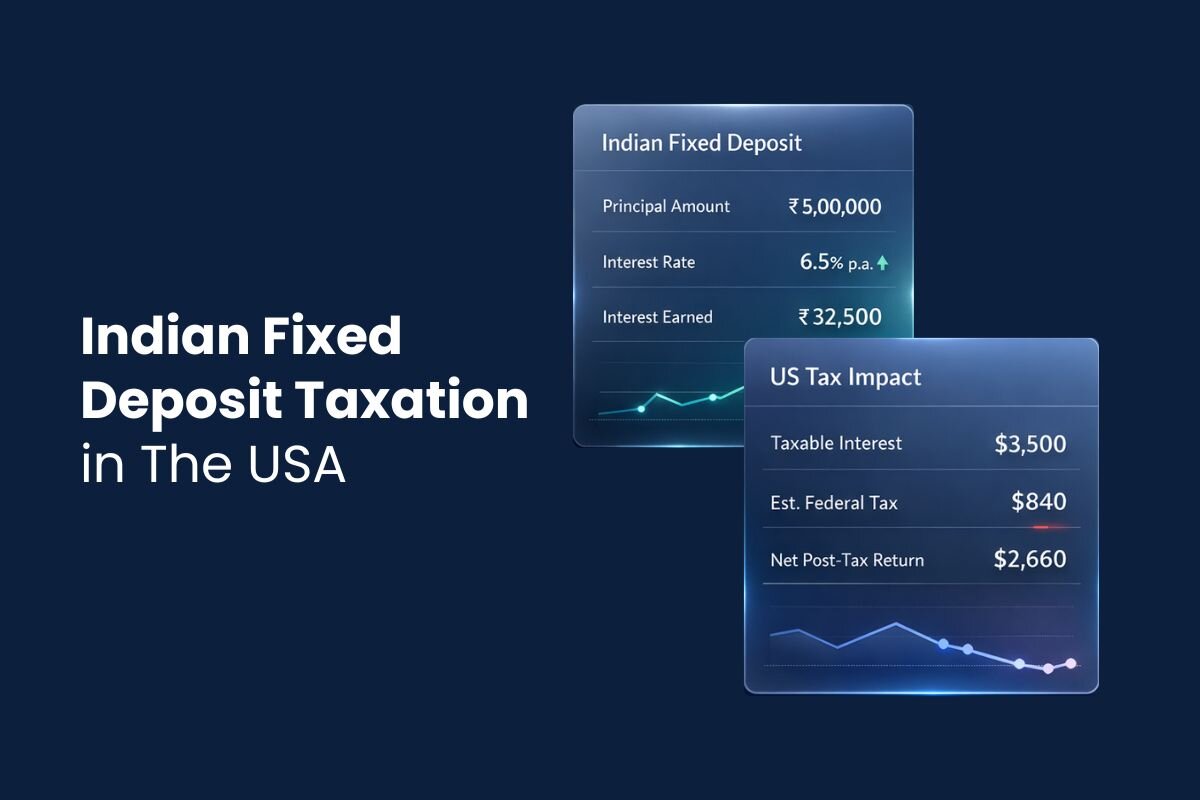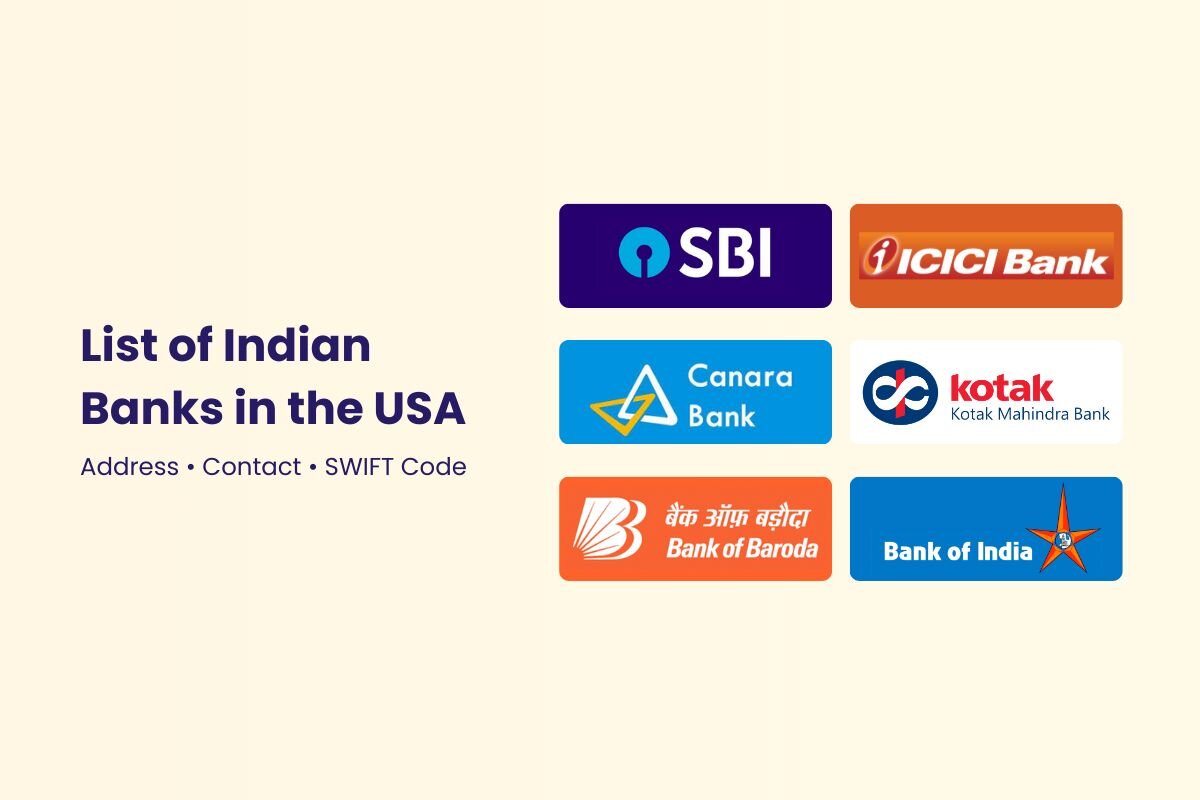Retirement planning as an NRI isn’t just about saving money, it’s about preparing for life across two worlds. Unlike residents in Western countries with built-in pension and healthcare benefits, NRIs must create their own safety net while managing cross-border taxation, currency risks, and rising costs.
Whether you plan to return to India or stay abroad, the decisions you make today will determine whether your golden years bring financial stress or lasting peace of mind.
Key Takeaway
Financial security in retirement goes beyond just saving money. You need a strategic roadmap that tackles the unique complexities of cross-border finances.
Your retirement strategy must consider investment growth, taxation, and currency risks all at once. More importantly, it should work whether you retire in India or stay abroad.
Here are the essential elements for building your secure retirement foundation:
- Start early and stay disciplined: Begin saving systematically to create your optimal retirement corpus. This approach lets you save affordably while compounding works its magic over the long term.
- Diversify strategically: Balance your portfolio between stable and high-return assets to spread investment risks and boost return potential. Think NRE/NRO fixed deposits, mutual funds, real estate, and global equity exposure.
- Plan for healthcare: Medical costs spike with age, especially if you're settling in India without insurance. Establishing dedicated health funds and securing insurance early becomes crucial.
- Navigate tax complexities: Know your tax obligations in both countries through Double Taxation Avoidance Agreements (DTAAs) and cross-border tax expert guidance.
- Consider currency fluctuations: Exchange rates can seriously impact your savings value. Dollar-denominated investment plans provide stability against currency swings.
Remember that retirement planning stays active - it requires regular review and adjustment. Your life circumstances and financial markets change, so your strategy must adapt too.
Why should NRIs start retirement planning early?
Time becomes your greatest ally in retirement planning when you're an NRI. Proper preparation for retirement isn't just smart money management - it determines whether you'll live comfortably or struggle financially during your golden years.
The power of compounding over time
Retirement planning that starts early unlocks compound interest's extraordinary potential. Money invested in your 20s or 30s works harder and longer than late-stage contributions. Modest, consistent contributions growing over decades can create substantial wealth.
Consider this: a penny doubling daily for 30 days reaches over $5 million by month's end. Retirement investments follow similar exponential patterns across longer timeframes.
Starting at 25 instead of 35 creates:
- Larger final corpus despite identical total contributions
- Lower monthly savings requirements to hit the same target
- Better protection against market swings through extended investment periods
How early planning reduces financial stress later
Early NRI retirement planning creates essential financial breathing room. Financial priorities shift from growth to preservation as retirement approaches. Starting early builds this cushion through several mechanisms.
Asset allocation becomes more flexible with time. Younger investors can dedicate 70-80% to equity before gradually shifting toward conservative instruments.
Early planning also addresses dual-country financial complexities unique to NRIs. Exchange rate risks and taxation puzzles become manageable with proper advance planning.
Healthcare expenses deserve special attention. Medical costs rise significantly with age, making early insurance decisions crucial.
Common delays and their long-term impact
Many NRIs postpone retirement planning despite clear benefits. The consequences can be devastating.
Delayed planning means missing higher returns from long-term instruments. Mutual funds, stocks, and deposits deliver substantially better results when held for extended periods.
Most concerning: delays dramatically shrink total retirement corpus even when identical amounts get invested over time. This shortfall might force extra working years or retirement debt - exactly when financial security matters most.
Global retirement strategies demand early action. Cross-border fund management requires immediate attention because delays cost opportunities in tax savings, currency protection, and regulatory compliance.
What are the best investment options for NRI retirement planning?
Your retirement portfolio needs the right mix of growth, security, and tax efficiency. Several investment vehicles work particularly well for NRIs building their retirement corpus.
NRE and NRO fixed deposits
Fixed deposits form the bedrock of NRI retirement planning with their stability and predictable returns. NRE fixed deposits currently offer interest rates ranging from 6.05% to 6.60% for different tenures, with special rates like 6.60% for 444-day deposits. These deposits let you convert foreign earnings into Indian rupees while keeping your repatriation rights intact.
NRE fixed deposits come with a major tax advantage: the interest earned is completely tax-free in India. NRO fixed deposits face approximately 30% taxation since they hold income generated within India. You can claim DTAA benefits if your country of residence has this agreement with India.
Mutual funds and ETFs
Mutual funds give NRIs direct access to India's growing markets through professional management. The key advantages include:
- Professional management by expert fund managers with access to global economic data
- Diversification across industries and stocks, lowering overall risk
- Flexibility through systematic investment plans and systematic withdrawal plans
- Liquidity with redemption options at current NAV in open-ended schemes
Mutual funds typically yield 12-15% annually for equity schemes and 8-10% for corporate bond schemes, based on past performance. All investments must route through NRE or NRO accounts after completing KYC requirements.
National Pension Scheme (NPS)
The National Pension Scheme offers NRIs between 18-60 years a government-sponsored retirement savings option. You'll need a minimum annual contribution of ₹6,000 and can choose investments across equity, corporate bonds, and government securities.
At 60, you can withdraw up to 60% of your corpus as a lump sum, while at least 40% must purchase an annuity for regular pension income. This creates disciplined retirement saving with professional fund management.
Real estate investments in India
Real estate delivers dual benefits: capital appreciation plus rental income. Major urban areas currently show strong rental yields due to growing housing demand. RERA regulations have improved, reducing fraud risks and enhancing buyer confidence.
You can purchase residential or commercial properties but not agricultural land unless inherited. All payments must flow through NRE, NRO, or FCNR accounts.
Global diversification strategies
Geography diversification forms a crucial part of sound retirement planning. The question isn't "India vs. abroad" but how to create a globally balanced portfolio.
Your investment allocation should match your retirement destination - if planning to retire in India, focus on INR-based cash flow generation while maintaining 20-40% in global assets to hedge against currency fluctuations.
How can NRIs manage taxes across countries?
Tax management becomes your biggest challenge in NRI retirement planning. Managing two tax systems means you need smart strategies to avoid double taxation on the same income.
Understanding DTAA and tax residency rules
Double Taxation Avoidance Agreements (DTAAs) protect you from dual taxation. India maintains DTAAs with over 90 countries, including Australia, Canada, UAE, USA, and UK. Your tax residency status determines how your income gets taxed - this designation matters more than you might think.
Your Tax Residency Certificate (TRC) proves where you pay taxes. You must have this document to claim DTAA benefits. Skip this step and face TDS deductions up to 17.81% on Indian income. Each TRC expires after one financial year, so annual renewal is mandatory.
Capital gains tax in India vs abroad
Different countries treat capital gains differently. Some DTAAs make mutual fund capital gains tax-free in both India and abroad under article 13(5). US residents face a different scenario - rental income from Indian property gets taxed in both countries, though foreign tax credit helps reduce the burden.
Tax-saving strategies for NRI retirement income
Three methods can optimize your tax situation:
- Foreign Tax Credit (FTC): Claim credit for taxes paid in the source country. The allowed credit equals the lower amount between tax paid abroad or tax payable in India on that income.
- Exemption method: Certain income types may be completely exempt in one country per specific DTAA clauses.
- Reduced tax rates: Pay concessional rates instead of standard rates. US residents can claim 15% concessional rates on interest earned in India.
Tax laws change frequently, so consult cross-border tax professionals before claiming any benefits. InvestMates ensures your cross-border taxation and financial compliance are expertly handled - it's like having tax experts on speed-dial without the complexity.
What healthcare and insurance plans should NRIs consider?
Healthcare expenses can destroy even the most carefully crafted retirement planning strategy. Your insurance decisions across borders deserve serious attention.
Health insurance in India vs abroad
The cost difference will shock you. Heart bypass surgery costs approximately $5,200 in India compared to $144,000 in the US. Health insurance in India makes perfect financial sense - premiums run significantly lower than most countries.
Your coverage strategy depends on your timeline:
- Purchase Indian health insurance if you're returning within 1-2 years
- Consider a top-up policy if 5-10 years away from return
- Remember that employer health coverage disappears when you leave your job abroad
Planning for long-term care and medical inflation
Medical inflation poses a silent threat to your retirement security. Healthcare costs climb 10.1% annually worldwide. Your savings need protection from this steady drain.
Long-term care options vary by location:
- Medicare covers you if retiring in the US
- Indian health policies with substantial coverage limits work for India returnees
- Private medical insurance helps UK residents skip NHS waiting times
Emergency medical fund setup
Insurance alone isn't enough. You need a separate emergency medical fund. Singles should maintain 3-6 months of expenses, families need up to a year's worth. NRIs supporting elderly parents should add roughly ₹10 lakhs for parental care.
This fund sits apart from your regular investment portfolio - it's your healthcare safety net when insurance falls short.
Where should NRIs retire: India or abroad?
Your retirement destination shapes everything about your financial strategy. 60-80% of NRIs across Australia, Singapore, UK, USA, and Canada are considering returning to India after retirement. This decision isn't just emotional - it's one of the most critical financial choices you'll make.
Cost of living comparison
The numbers tell a clear story. Comfortable retirement in India costs ₹25,000-98,000 monthly (USD 300-1,200). US retirees spend USD 2,500-7,600 monthly. Housing, food, transportation, and healthcare cost substantially less in India. Your retirement corpus stretches much further back home.
Think of it this way - the same money that covers basic living abroad can fund a comfortable lifestyle in India with domestic help included.
Social and family considerations
Money isn't everything. Many NRIs feel isolated abroad once career pressures and child-rearing end. India offers cultural connection, festivals, and community engagement that money can't buy.
Domestic help - scarce and expensive in Western countries - becomes affordable and accessible as you age. This support system proves invaluable when mobility becomes an issue.
Legal and financial implications of each choice
Returning to India triggers important changes:
- NRE fixed deposit interest becomes taxable
- NRE/NRO accounts need re-designation
- Global income may become taxable after RNOR status ends
Smart timing aligns your return with tax residency rules in both countries, potentially saving thousands. Your financial advisor should map out these implications well before you make the move.
Conclusion
Your retirement planning journey as an NRI requires smart decisions today that pay dividends tomorrow. The challenges are real, but your proactive approach now builds the foundation for financial independence later.
Early planning gives compounding time to work its magic. Your retirement corpus grows stronger when you give it decades rather than years to mature.
Smart diversification protects your wealth from market swings. Mix NRE fixed deposits, mutual funds, the National Pension Scheme, and real estate investments based on where you plan to retire. Your investment location should match your retirement destination.
Tax planning through Double Taxation Avoidance Agreements keeps more money in your pocket. Get your Tax Residency Certificate renewed annually and understand the rules in both countries.
Healthcare costs climb every year worldwide. Build dedicated medical emergency funds and secure insurance coverage early. These safeguards protect your retirement savings from unexpected health bills.
Your retirement location choice shapes everything else. The numbers clearly favor India for stretching your corpus further.
Think of retirement planning like building a house - you need a solid foundation, strong framework, and regular maintenance. We help NRIs create that sturdy financial structure across borders.
Your retirement years should reward decades of hard work. Smart planning today means you'll enjoy those years with confidence and peace of mind. Your future self will thank you for the decisions you make right now.
About the Author

By Prakash
CEO & Founder of InvestMates
Prakash is the CEO & Founder of InvestMates, a digital wealth management platform built for the global Indian community. With leadership experience at Microsoft, HCL, and Accenture across multiple countries, he witnessed firsthand challenges of managing cross-border wealth. Drawing from his expertise in engineering, product management, and business leadership, Prakash founded InvestMates to democratize financial planning and make professional wealth management accessible, affordable, and transparent for every global Indian.




